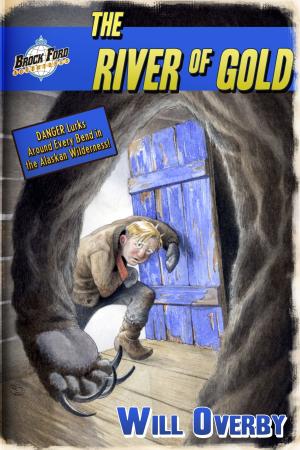| Author: | George Webbe Dasent | ISBN: | 1230001033397 |
| Publisher: | @AnnieRoseBooks | Publication: | April 13, 2016 |
| Imprint: | Language: | English |
| Author: | George Webbe Dasent |
| ISBN: | 1230001033397 |
| Publisher: | @AnnieRoseBooks |
| Publication: | April 13, 2016 |
| Imprint: | |
| Language: | English |
THE events described in the Saga of Gisli the Soursop reach from the end of Harold Fairhair's reign to the middle of the reign of Earl Hacon the Bad, or from about the year 930 to 980. Nothing can be livelier or more truthful than the account contained in it of Norwegian and Icelandic life and manners during those fifty years. In Norway itself, about the beginning of that period, Harold Fairhair, now grown old, had shared the kingdom which he had won with so much toil and blood among his sons, to be ruled over by Eric Bloody-axe as overking. Eric's incapacity and his wife Gunnhillda's cruelty soon lost what his politic father had won. He was forced to fly the land, and was succeeded by Hacon, another son of Harold Fairhair, who was called Hacon Athelstane's Fosterchild, because he had been sent by his father to be fostered by that famous English king. Of this prince, whose memory was held very dear by his people as Hacon the Good, the Saga of Gisli Soursop contains a sketch which, as a mere interpolation, has been banished from the body of the text, but which well deserves to stand here:--"As soon as he heard of his father's death Hacon came west from England and went straight north to Drontheim, where he sought out first Sigurd the jarl of Hladir, and promised to give him up the jarldom which his father had held if he would back his claim as king. 'Methinks,' he said, 'that would be a good bargain if thou put me forward as king, and I gave thee such honour as thy father held before thee. Then thou wouldst be free and not fettered, as all now are in this land.' It had been one of, the imposts of Harold Fairhair that he claimed as his own all the soil in Norway, both tilled and untilled, and the sea and lakes as well. Every man was to be his tenant and vassal. Now the jarl thinks over the matter; and it seemed to him that Hacon spoke fair, and so they struck a fast friendship. Then the jarl calls together a Thing of the three districts round Drontheim; and as soon as the Thing was set, up rises Hacon and spoke thus:--'It is well known to all men who have now come hither how Harold Fairhair laid all Norway under his feet--all the way north from Finmark down to the Gotha-Elf. He was, in truth, absolute king over all men. He had, too, as ye well know, a host of sons, most of them proper men; but he loved them very unevenly. Some he sent away to other lands, but some be kept with him about his court; and of all of them it was Eric Bloody-axe whom he weened would rule first and foremost of all his sons. So all obeyed him well in that matter as long as he lived; but now my kinsman Eric has wrought very many things which are beyond bearing. And so I will ask this boon of all ye good men of Drontheim, that ye shall try to stay and strengthen him who will be more forbearing to the people, and who will rather let his kinsmen and the folk lift their heads a little, than him who strives to pull the people down. As for me, I wish to make it known that I will give up their freeholds to all those men who will cling to me and call me king.'
THE events described in the Saga of Gisli the Soursop reach from the end of Harold Fairhair's reign to the middle of the reign of Earl Hacon the Bad, or from about the year 930 to 980. Nothing can be livelier or more truthful than the account contained in it of Norwegian and Icelandic life and manners during those fifty years. In Norway itself, about the beginning of that period, Harold Fairhair, now grown old, had shared the kingdom which he had won with so much toil and blood among his sons, to be ruled over by Eric Bloody-axe as overking. Eric's incapacity and his wife Gunnhillda's cruelty soon lost what his politic father had won. He was forced to fly the land, and was succeeded by Hacon, another son of Harold Fairhair, who was called Hacon Athelstane's Fosterchild, because he had been sent by his father to be fostered by that famous English king. Of this prince, whose memory was held very dear by his people as Hacon the Good, the Saga of Gisli Soursop contains a sketch which, as a mere interpolation, has been banished from the body of the text, but which well deserves to stand here:--"As soon as he heard of his father's death Hacon came west from England and went straight north to Drontheim, where he sought out first Sigurd the jarl of Hladir, and promised to give him up the jarldom which his father had held if he would back his claim as king. 'Methinks,' he said, 'that would be a good bargain if thou put me forward as king, and I gave thee such honour as thy father held before thee. Then thou wouldst be free and not fettered, as all now are in this land.' It had been one of, the imposts of Harold Fairhair that he claimed as his own all the soil in Norway, both tilled and untilled, and the sea and lakes as well. Every man was to be his tenant and vassal. Now the jarl thinks over the matter; and it seemed to him that Hacon spoke fair, and so they struck a fast friendship. Then the jarl calls together a Thing of the three districts round Drontheim; and as soon as the Thing was set, up rises Hacon and spoke thus:--'It is well known to all men who have now come hither how Harold Fairhair laid all Norway under his feet--all the way north from Finmark down to the Gotha-Elf. He was, in truth, absolute king over all men. He had, too, as ye well know, a host of sons, most of them proper men; but he loved them very unevenly. Some he sent away to other lands, but some be kept with him about his court; and of all of them it was Eric Bloody-axe whom he weened would rule first and foremost of all his sons. So all obeyed him well in that matter as long as he lived; but now my kinsman Eric has wrought very many things which are beyond bearing. And so I will ask this boon of all ye good men of Drontheim, that ye shall try to stay and strengthen him who will be more forbearing to the people, and who will rather let his kinsmen and the folk lift their heads a little, than him who strives to pull the people down. As for me, I wish to make it known that I will give up their freeholds to all those men who will cling to me and call me king.'















